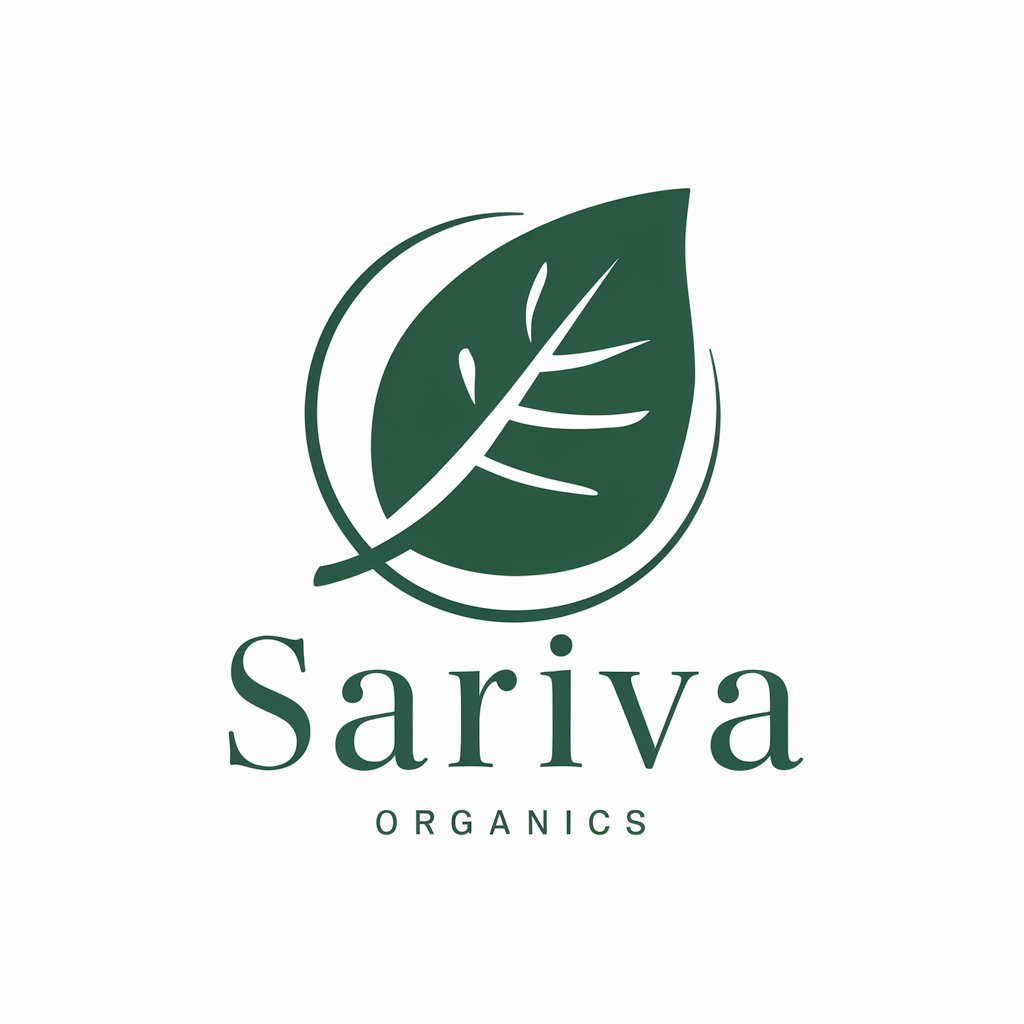Ginger, known as “adrak” in Hindi, is a staple in Indian households, revered not only for its distinctive flavor but also for its medicinal properties. This humble root has been a cornerstone of Indian cuisine and Ayurvedic medicine for centuries, used to add a zesty kick to dishes and soothe various ailments. From spicy curries and refreshing teas to healing tonics, the versatility and health benefits of ginger make it indispensable in every Indian kitchen.
Choosing organic ginger over conventionally grown ginger is crucial for maximizing its health benefits. Organic ginger is grown without the use of synthetic pesticides and fertilizers, ensuring that it retains its full nutrient profile and is free from harmful chemicals. Additionally, organic farming practices promote soil health and sustainability, making it a better choice for the environment.
I vividly remember my grandmother’s kitchen in Kolkata, where the aroma of freshly grated ginger was a constant companion. She would make a potent ginger and honey concoction whenever anyone caught a cold. “It’s nature’s own medicine,” she’d say with a wink. Watching her expertly add ginger into our meals, from hearty dals to soothing teas, I learned to appreciate its myriad benefits and delicious taste. Her wisdom has stayed with me, guiding my journey into organic farming and healthy living.
Key Takeaways
- Nutrient-Rich: Ginger is packed with essential nutrients like Vitamin B6, Vitamin C, magnesium, potassium, and gingerol, which offer various health benefits.
- Anti-inflammatory Properties: The bioactive compounds in ginger, especially gingerol, have powerful anti-inflammatory effects that help reduce pain and inflammation in the body.
- Digestive Aid: Ginger aids digestion by stimulating saliva, bile, and gastric juices, preventing issues like bloating, gas, and indigestion.
- Immune Booster: Regular consumption of ginger boosts the immune system, helping to ward off infections and illnesses.
- Pain Relief: Ginger effectively manages pain, including menstrual pain and migraines, by inhibiting pain-triggering compounds in the body.
- Cardiovascular Health: Ginger helps lower cholesterol levels and blood pressure, reducing the risk of heart disease.
- Anti-cancer Properties: Research indicates that ginger’s antioxidants can inhibit the growth and spread of certain types of cancer cells.
- Skin and Hair Benefits: Ginger improves skin health by reducing blemishes and inflammation and promotes hair growth by enhancing blood circulation to the scalp.
- Weight Management: Ginger aids in weight loss by boosting metabolism and reducing appetite, supported by scientific studies.
- Organic Advantage: Organic ginger offers higher nutrient density and is free from harmful chemicals, making it a healthier and more environmentally friendly choice.
By adding organic ginger into your daily diet, you can enjoy these numerous health benefits and enhance your overall well-being.
Nutritional Profile of Ginger

Ginger is a nutritional powerhouse packed with a variety of vitamins, minerals, and antioxidants that contribute to its numerous health benefits. This aromatic root contains essential nutrients like Vitamin B6, Vitamin C, magnesium, potassium, and manganese.
Additionally, ginger is rich in gingerol, a bioactive compound with powerful anti-inflammatory and antioxidant properties. These nutrients work synergistically to support overall health, boost the immune system, and protect against chronic diseases.
When comparing organic ginger to its non-organic counterpart, the difference in nutrient density can be significant. Organic ginger is grown in nutrient-rich soil without the use of synthetic fertilizers and pesticides, which often leads to a higher concentration of vitamins, minerals, and antioxidants.
On the other hand, conventionally grown ginger might be exposed to chemicals that can diminish its nutritional value and introduce harmful residues. Studies have shown that organic produce generally has a higher antioxidant content, making organic ginger a more potent option for health-conscious consumers.
Selecting the best organic ginger at the market requires a keen eye and a bit of know-how.
Here’s a personal tip: look for ginger roots that are firm, smooth, and free from blemishes or mold.
The skin should be thin and easily peelable, indicating freshness. Fresh organic ginger also has a strong, spicy aroma. Avoid ginger that appears shriveled or has soft spots, as these are signs of age and decreased potency. I always prefer buying ginger with the skin intact, as it helps preserve its nutrients until I’m ready to use it.
By choosing the best quality organic ginger, you can ensure that you’re getting the most out of this incredible root, both in terms of flavor and health benefits.
Refined Oils Vs Cold Pressed Oils
Anti-inflammatory Properties

Ginger is renowned for its potent anti-inflammatory properties, primarily due to the presence of gingerol, a bioactive compound that gives ginger its distinctive spicy flavor.
Gingerol has powerful antioxidant and anti-inflammatory effects, which help reduce oxidative stress and inflammation in the body. Chronic inflammation is linked to a variety of health issues, including arthritis, heart disease, and certain cancers. By adding ginger into your diet, you can help mitigate these risks and support overall health.
Reducing inflammation in the body has numerous benefits, including alleviating pain and swelling, improving joint function, and enhancing overall well-being. Ginger’s anti-inflammatory properties make it particularly effective in managing conditions like osteoarthritis and rheumatoid arthritis.
Regular consumption of ginger can help reduce the production of pro-inflammatory cytokines, which are molecules that promote inflammation. This, in turn, can lead to reduced pain and improved mobility.
I remember a time when my husband was struggling with severe knee pain due to arthritis. Conventional painkillers provided only temporary relief, so I decided to try a natural remedy. I began preparing fresh ginger tea for him daily, using organic ginger root.
To our delight, after a few weeks of consistent consumption, he experienced a significant reduction in pain and inflammation. The soothing warmth of the ginger tea not only helped his joints but also provided a comforting ritual we both came to cherish.
Digestive Health Benefits

Ginger has long been celebrated for its digestive health benefits, making it a staple in traditional Indian medicine. It aids digestion by stimulating the production of saliva, bile, and gastric juices, which are essential for the breakdown of food.
Ginger also helps relax the muscles of the gastrointestinal tract, preventing issues like bloating, gas, and indigestion. Its carminative properties help in expelling gas from the digestive system, providing relief from discomfort.
In Ayurveda, ginger is often used to treat digestive problems and improve overall gut health. It is known to enhance agni, or digestive fire, which is crucial for efficient digestion and nutrient absorption.
By promoting healthy digestion, ginger helps prevent conditions like constipation, nausea, and stomach cramps. Additionally, its antimicrobial properties can help combat harmful bacteria in the gut, further supporting digestive health.
Here’s a personal tip: I have a simple recipe for a homemade ginger digestive tonic that works wonders. Combine one tablespoon of freshly grated organic ginger with a cup of warm water. Add a teaspoon of honey and a squeeze of lemon juice. Stir well and drink this tonic before meals to stimulate digestion and prevent digestive discomfort. This refreshing drink not only aids digestion but also provides a pleasant, invigorating flavor.
Health Benefits of Turmeric (Haldi)
Immune System Support
Ginger plays a crucial role in boosting the immune system and preventing illnesses. Its high antioxidant content helps combat oxidative stress, which can weaken the immune system.
Additionally, ginger has antimicrobial properties that help fight off harmful bacteria and viruses. Regular consumption of ginger can enhance the body’s ability to ward off infections, making it a valuable addition to any diet, especially during the cold and flu season.
By improving circulation and promoting sweating, ginger helps the body eliminate toxins and supports immune function. It also has anti-inflammatory effects that further bolster the immune system by reducing chronic inflammation, which can compromise immunity.
Adding ginger into your daily routine can help maintain optimal health and prevent common ailments.
During the winter months, I make a special ginger tea that my family swears by to fend off colds and flu. I boil a few slices of fresh organic ginger in water, then add a dash of turmeric, a pinch of black pepper, and a spoonful of honey.
This golden elixir not only warms us up but also provides a potent immune boost. I remember a particularly harsh winter when my son caught a nasty cold. This ginger tea, served with love and a slice of lemon, helped him recover quickly and kept the rest of us healthy. Ginger has truly become a trusted ally in our household for maintaining robust immunity.
Health Benefits of Moringa (Drumstick)
Pain Relief
Ginger has been widely recognized for its effectiveness in managing various types of pain, including menstrual pain and migraines. The active compounds in ginger, such as gingerol and shogaol, possess potent anti-inflammatory and analgesic properties that help reduce pain and inflammation.
These compounds work by inhibiting the production of prostaglandins, which are chemicals in the body that trigger pain and inflammation.
Scientific studies have supported ginger’s pain-relief properties. For instance, research has shown that ginger can significantly reduce the severity and duration of menstrual pain.
In a study published in the Journal of Alternative and Complementary Medicine, women who consumed ginger experienced a marked decrease in menstrual pain compared to those who took a placebo. Similarly, ginger has been found effective in alleviating migraine symptoms. A study in Phytotherapy Research reported that ginger powder was as effective as conventional migraine medications in reducing headache severity.
For a simple ginger-based remedy to relieve headaches, try this: grate a small piece of fresh organic ginger and mix it with a teaspoon of honey. Consume this mixture with a glass of warm water at the onset of a headache.
The combination of ginger’s anti-inflammatory properties and honey’s soothing effect can provide quick relief. Additionally, you can apply a paste made of ginger powder and water to your forehead for a soothing, cooling effect that helps alleviate headache pain.
Health Benefits of Amla (Indian Gooseberry)
Cardiovascular Health
Ginger can play a significant role in improving heart health by lowering cholesterol levels and blood pressure, both of which are critical factors in reducing the risk of heart disease.
The bioactive compounds in ginger, particularly gingerol, have been shown to improve circulation, reduce blood clots, and lower levels of LDL (bad) cholesterol while increasing HDL (good) cholesterol.
Several studies highlight ginger’s potential to enhance cardiovascular health. For instance, research published in the Journal of Nutrition demonstrated that ginger supplementation could significantly lower LDL cholesterol levels and improve overall lipid profiles.
Another study in Hypertension Research found that ginger could effectively reduce blood pressure in individuals with hypertension. These findings suggest that adding ginger into your diet can help protect against heart disease and promote a healthy cardiovascular system.
In our household, we have seen firsthand the benefits of ginger for heart health. My husband, who has a history of high blood pressure and cholesterol, started adding ginger into his daily diet after I introduced him to its heart-healthy benefits.
I began adding freshly grated ginger to his morning smoothie and our evening soups. Over time, his cholesterol levels improved, and his blood pressure became more stable.
Ginger has become a trusted ally in our journey to better heart health, providing natural support alongside conventional treatments.
Health Benefits of Tulsi (Holy Basil)
Anti-cancer Properties
Research on ginger’s potential to prevent and treat certain types of cancer is promising, highlighting its role in fighting cancer cells through its antioxidant properties.
The compounds in ginger, including gingerol, shogaol, and paradol, have been shown to inhibit the growth and spread of cancer cells by inducing apoptosis (programmed cell death) and inhibiting angiogenesis (formation of new blood vessels that feed tumors).
Studies have demonstrated ginger’s effectiveness against various types of cancer, such as ovarian, colorectal, and pancreatic cancer. For example, a study published in the British Journal of Nutrition found that ginger extract significantly inhibited the growth of prostate cancer cells.
Another study in the Journal of Biomedicine and Biotechnology reported that ginger could reduce the size and number of tumors in colorectal cancer. These findings suggest that ginger’s potent antioxidants play a crucial role in its anti-cancer effects, making it a valuable addition to a cancer-preventive diet.
To add ginger into your daily diet for its preventive benefits, try adding freshly grated ginger to your salads, smoothies, or teas.
A personal tip: I like to make a refreshing ginger-infused water by adding thin slices of organic ginger to a pitcher of water and letting it steep overnight.
This simple drink not only keeps you hydrated but also provides a steady supply of ginger’s cancer-fighting compounds throughout the day. By making ginger a regular part of your diet, you can harness its powerful properties to support your overall health and reduce the risk of cancer.
Benefits of Organic Castor Oil
Skin and Hair Benefits
Ginger is not only a powerful remedy for internal health issues but also a beneficial ingredient for enhancing skin and hair health. Rich in antioxidants, vitamins, and minerals, ginger helps to rejuvenate the skin, reduce blemishes, and improve overall skin tone.
Its anti-inflammatory properties can soothe irritated skin and reduce the appearance of scars and acne. Additionally, the antimicrobial properties of ginger help combat skin infections and keep the skin clear and healthy.
For hair, ginger can stimulate blood flow to the scalp, which in turn promotes hair growth. The vitamins, minerals, and fatty acids present in ginger strengthen hair strands, prevent hair loss, and add a natural shine to your hair.
Using ginger in hair care routines can help tackle issues such as dandruff and dry, itchy scalp.
I’ve always been fond of natural skincare remedies, and one of my favorite homemade recipes is a ginger mask for glowing skin. To make this mask, mix one tablespoon of freshly grated organic ginger with two tablespoons of honey and one tablespoon of yogurt.
Apply the mixture to your face and let it sit for 15-20 minutes before rinsing off with warm water. This mask not only revitalizes the skin but also leaves it feeling soft and supple. I’ve shared this recipe with friends and family, and it has become a beloved part of our skincare routines.
Benefits of Organic Flaxseed Oil
Weight Management
Ginger is an excellent aid in weight management due to its ability to boost metabolism and reduce appetite. The thermogenic properties of ginger help increase the body’s metabolic rate, allowing you to burn more calories and fat.
Additionally, ginger improves digestion and helps stabilize blood sugar levels, which can reduce cravings and overeating.
Several studies support ginger’s role in weight management. For instance, a study published in the European Journal of Nutrition found that participants who consumed ginger experienced greater reductions in body weight and waist-to-hip ratio compared to those who did not.
Another study in Metabolism highlighted ginger’s effectiveness in enhancing the thermic effect of food, leading to increased calorie burning after meals.
A personal tip for adding ginger into your weight management routine is to make a ginger-infused drink. Here’s a simple recipe: boil a few slices of fresh organic ginger in water for about 10 minutes. Strain the liquid into a cup and add a teaspoon of honey and a squeeze of lemon juice.
Drink this ginger tea in the morning on an empty stomach to kickstart your metabolism and promote weight loss. This refreshing beverage not only aids in weight management but also provides a delicious start to your day.
Benefits of Organic Jaggery (Gur)
Why Organic Ginger
At Sariva Organics, I take immense pride in cultivating organic ginger on my farm in Uttarakhand. The pristine environment and rich soil here provide the perfect conditions for growing this powerful root.
My farming practices emphasize sustainability and health, ensuring that our ginger is free from synthetic pesticides, herbicides, and fertilizers.
I use organic compost, made from natural plant and animal waste, to fertilize our ginger crops. This compost enriches the soil with essential nutrients, promoting healthy plant growth and enhancing the ginger’s natural flavor and potency.
My organic methods ensure that our ginger retains its full nutrient profile, providing maximum health benefits without any harmful chemical residues.
I warmly invite you to visit my farm and witness firsthand how I grow our ginger with care and dedication. You’ll have the opportunity to see our composting process, walk through our lush ginger fields, and learn about the sustainable practices I use to maintain soil health and biodiversity.
A farm visit is not only educational but also a chance to connect with nature and understand the journey of your food from farm to table.
Experience the difference of organic farming at Sariva Organics, and take home some of our freshly harvested ginger to enjoy its unparalleled quality and health benefits.
Health Benefits of Organic Garlic (Lahsun)
Conclusion
In summary, organic ginger offers numerous health benefits, ranging from its anti-inflammatory and pain-relief properties to its ability to improve digestion, boost the immune system, enhance cardiovascular health, and even fight cancer.
Its versatile nature makes it an invaluable ingredient in both culinary and medicinal applications.
By choosing organic ginger, you ensure that you’re reaping the full benefits without the harmful effects of pesticides and chemicals.
Adding organic ginger into your daily diet can be a simple yet powerful step towards better health. Whether it’s adding a slice to your morning tea, using it in your cooking, or applying it in skincare routines, ginger’s potent properties can significantly enhance your well-being.
I’ll leave you with one of my favorite family recipes that features ginger: ginger-laced carrot soup. This heartwarming soup is a staple in our household, especially during the cooler months. Simply sauté onions, garlic, and fresh ginger in olive oil, then add chopped carrots and vegetable broth. Let it simmer until the carrots are tender, then blend until smooth.
The result is a delicious, creamy soup with a hint of spicy ginger that warms the soul and nourishes the body. This recipe not only showcases the versatility of ginger but also brings our family together over a wholesome, homemade meal.
By making ginger a regular part of your diet, you can enjoy its many health benefits and add a flavorful twist to your everyday meals.
Health Benefits of Organic Honey
FAQ Section
1. What are the primary health benefits of organic ginger?
Organic ginger offers a wide range of health benefits, including:
- Anti-inflammatory Properties: Ginger contains bioactive compounds like gingerol, which have strong anti-inflammatory effects, helping to reduce pain and inflammation in conditions such as arthritis.
- Digestive Health: Ginger aids in digestion by stimulating saliva, bile, and gastric juice production. It helps prevent issues like bloating, gas, and indigestion.
- Immune System Support: Ginger boosts the immune system through its antioxidant and antimicrobial properties, helping to fight off infections and illnesses.
2. How can I add organic ginger into my daily diet?
Adding organic ginger into your daily diet is easy and can be done in various delicious ways:
- Teas and Infusions: Add slices of fresh ginger to hot water to make ginger tea. You can enhance the flavor with honey and lemon.
- Cooking: Use freshly grated ginger in soups, stews, curries, stir-fries, and marinades to add a zesty kick and health benefits to your meals.
- Smoothies: Blend fresh ginger into your morning smoothies for an extra boost of nutrients and a spicy flavor.
3. Is there a significant difference between organic and non-organic ginger?
Yes, there is a significant difference between organic and non-organic ginger:
- Nutrient Density: Organic ginger is often richer in vitamins, minerals, and antioxidants compared to non-organic ginger because it is grown in nutrient-rich soil without synthetic fertilizers and pesticides.
- Health Benefits: Organic ginger is free from harmful chemical residues, making it a safer and healthier option.
- Environmental Impact: Organic farming practices are more sustainable and environmentally friendly, promoting soil health and reducing pollution.
By choosing organic ginger, you ensure that you are getting the most out of this incredible root, both in terms of health benefits and environmental impact.
References:
- Anti-inflammatory and Pain-Relief Properties:
- Title: “Effect of Ginger (Zingiber officinale) on Pain Relief in Primary Dysmenorrhea: A Placebo Randomized Trial”
- Authors: S. Ozgoli, M. Goli, S. Moattar
- Journal: Journal of Alternative and Complementary Medicine
- Summary: This study investigated the effects of ginger on menstrual pain relief and found that ginger significantly reduced pain severity compared to a placebo.
- Link: Effect of Ginger on Pain Relief in Primary Dysmenorrhea
- Digestive Health Benefits:
- Title: “The Effects of Ginger on Human Health: A Comprehensive Review”
- Authors: H. Ghasemzadeh, N. Ghasemzadeh
- Journal: International Journal of Preventive Medicine
- Summary: This comprehensive review covers various health benefits of ginger, including its positive effects on digestive health by stimulating digestion and reducing nausea and vomiting.
- Link: The Effects of Ginger on Human Health
- Cardiovascular Health:
- Title: “Ginger Extract Consumption Reduces Plasma Cholesterol in Hypercholesterolemic Subjects: A Randomized Controlled Trial”
- Authors: A. Alizadeh-Navaei, M. Roozbeh, S. Saravi, A. H. Mohammadpour, B. Nasrolahi
- Journal: Saudi Medical Journal
- Summary: This study found that ginger extract consumption significantly reduced plasma cholesterol levels in hypercholesterolemic individuals, suggesting its beneficial effects on cardiovascular health.
- Link: Ginger Extract Consumption Reduces Plasma Cholesterol
These studies provide robust evidence of the various health benefits of ginger, supporting its use in both traditional and modern medicine.
